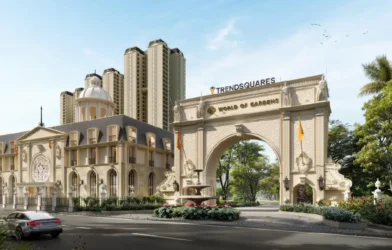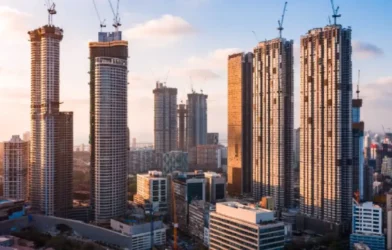Subtotal ₹0.00
As urban fatigue and pollution take a toll on city dwellers, a growing number of Indians are escaping to serene countryside retreats. This rising preference for wellness-driven, eco-friendly living is propelling India’s organized farmstay market into a high-growth phase.
According to a new study by Axon Developers, the country’s organized farmstay market—valued at around ₹16,100 crore in 2025—is projected to surge past ₹63,000 crore by 2029, registering a CAGR of 40.8%. The number of farmstay units, currently at ~17,700 across 150+ projects, is expected to rise to 46,000 units over the same period, covering nearly 37,000 acres of land.
“Area-wise, around half of the supplies are concentrated in the Southern parts of India. This is followed by western parts of the country, which contributes to 29% of the market. The remaining is led by the North and the Eastern regions of India,” said Ankit Kansal, MD, Axon Developers.
On being asked about what is driving this market frenzy, Kansal suggested, “Urban fatigue is on an upswing. Hectic lifestyle and congested city neighbourhoods are affecting the overall wellbeing of average residents. There is pressing demand for wellness driven lifestyle, cleaner environs, decongested living and tranquillity. Homebuyers are now understanding how essential it is to lead a life that can ensure overall physical, mental and spiritual wellbeing. This is naturally putting spotlight on farmstays as a viable option for long & short stay.”
Many individuals are even permanently shifting to managed farmstays and using them as primary residence. The growing popularity of remote working, hybrid working and work from anywhere makes it suitable to permanently shift into tranquil destinations and live, work & play from there. In contrast to fast-paced urban lifestyle which average urban dwellers are used to, a tranquil farmstay can offer a very immersive, mindful and slow-paced living.
The availability of lush green scenic locations in the vicinity of major Indian cities such as Nandi Hills (Bangalore), Panvel, Karajat, Alibaug (Mumbai), NH-8, Naugaon (NCR) further makes it convenient to shun hectic urban lives and shift into spacious & verdant farmhouses.
Many tourists now prefer managed farmstays for solo travels, staycations, family hangouts, corporate retreats, etc. This makes farmstay a viable asset for unlocking recurrent rental streams.
The stay in farmhouses, whether permanent or temporary makes a very interesting stay with plenty of fun-filled activities such as indulging in fresh organic foods, learn about farming activities, interact with local communities, eco-friendly stay, wellness retreats, fruit plucking, and much more. Similarly, one can opt for numerous activities such as long nature walks, swimming in local water bodies, bird and animal watching, etc.
On being asked about Axon foraying into the organized farmstay sector, Kansal said, “We are launching a mega project in the picturesque destination of Tilari, located in Konkan region of Maharashtra, at a distance of ~ 10 mins from Goa border and 50 mins from the MOPA airport. The initial project will be spread across 1,000 acres which will be strategically appended to add 3000 acres mores in next 4 years. The scenic beauties of Tilari with lakes, hills and pristine forests makes it perfect to develop world-class farm houses, cottages, wood houses, etc. The region has potential to transform into sustainable hospitality & real estate hub.”














